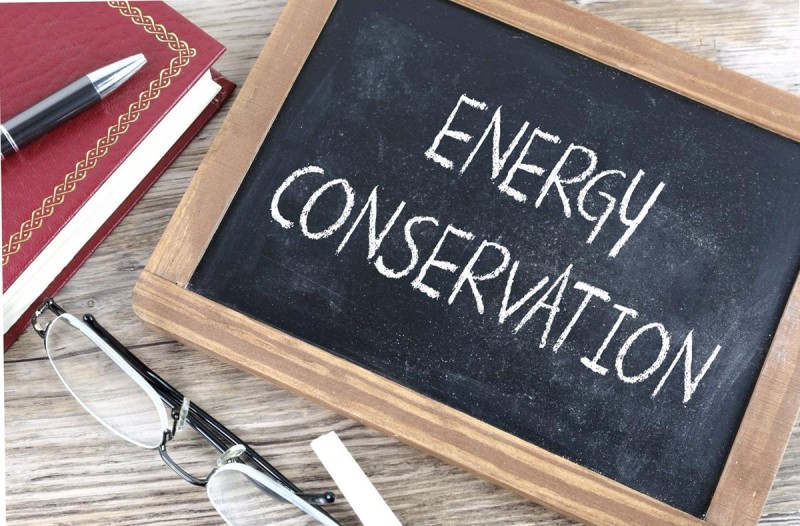
In a world where environmental concerns are becoming increasingly urgent, the importance of energy conservation cannot be overstated. By adopting simple yet impactful practices, we can collectively make a significant difference in reducing our carbon footprint and preserving the planet for future generations. This article delves into the concept of energy conservation, offering practical tips and insights on how individuals, businesses, and communities can contribute to a more sustainable future.
Understanding Energy Conservation
Energy conservation refers to the practice of reducing energy consumption by utilizing resources more efficiently while minimizing waste. It involves making conscious choices to limit energy usage and implementing technologies and strategies that promote sustainability.
Benefits of Energy Conservation
Energy conservation offers a multitude of benefits, ranging from environmental preservation to economic savings. By reducing energy consumption, we can lower greenhouse gas emissions, mitigate climate change, and conserve valuable natural resources. Additionally, individuals and businesses can save money on utility bills, creating a positive impact on their finances.
Residential Energy-Saving Strategies
Efficient Lighting Choices
One of the simplest ways to conserve energy at home is by using energy-efficient light bulbs, such as LED or CFL bulbs. These bulbs consume significantly less energy and have a longer lifespan compared to traditional incandescent bulbs.
Proper Insulation and Sealing
A well-insulated home retains heat in the winter and stays cool in the summer, reducing the need for excessive heating or cooling. Sealing gaps and cracks in doors, windows, and walls also prevents energy leakage.
Smart Thermostat Usage
Smart thermostats allow homeowners to regulate their home's temperature remotely and create heating and cooling schedules, optimizing energy usage and reducing wastage.
Energy-Efficient Appliances
Investing in energy-efficient appliances, such as refrigerators, washing machines, and dishwashers, can lead to substantial energy savings over time.
Industrial Energy Conservation
Industries can make significant contributions to energy conservation by implementing the following strategies:
Process Optimization
Streamlining industrial processes and minimizing energy-intensive steps can lead to reduced energy consumption and enhanced productivity.
Waste Heat Recovery
Recovering and repurposing waste heat generated during industrial processes can provide an additional source of energy while reducing overall consumption.
Upgraded Machinery
Replacing outdated machinery with modern, energy-efficient equipment can result in substantial energy savings and increased operational efficiency.
Renewable Energy Sources
Harnessing renewable energy sources offers a sustainable alternative to fossil fuels. The following sources are gaining momentum:
Solar Power
Solar panels convert sunlight into electricity, providing a clean and renewable source of energy.
Wind Energy
Wind turbines harness the power of wind to generate electricity, offering a reliable and eco-friendly energy solution.
Hydropower
Hydropower plants utilize the energy of flowing water to produce electricity, contributing to a greener energy mix.
Transportation and Energy Efficiency
Transportation plays a vital role in energy conservation. Consider the following options for more energy-efficient commuting:
Fuel-Efficient Vehicles
Opt for fuel-efficient or hybrid vehicles that consume less fuel and emit fewer pollutants.
Public Transportation
Using buses, trains, or subways reduces the number of individual vehicles on the road, thereby decreasing fuel consumption and greenhouse gas emissions.
Active Commuting
Walking or cycling for short trips not only saves energy but also promotes a healthier lifestyle.
The Role of Technology
Incorporating advanced technologies can further enhance energy conservation efforts:
Smart Grids
Smart grids enable efficient energy distribution and real-time monitoring, optimizing energy usage across the grid.
Energy Management Systems
These systems allow homeowners and businesses to monitor and control energy consumption, promoting more conscious energy usage.
Home Automation
Automated systems for lighting, heating, and cooling ensure that energy is used only when needed, minimizing wastage.
Government Policies and Incentives
Governments play a pivotal role in promoting energy conservation through:
Energy-Efficiency Standards
Implementing and enforcing energy-efficiency standards for appliances and vehicles ensures that only energy-efficient options are available in the market.
Tax Incentives
Providing tax incentives for energy-efficient upgrades encourages individuals and businesses to invest in sustainable practices.
Corporate Social Responsibility
Companies can contribute to energy conservation through:
Sustainable Practices
Adopting eco-friendly manufacturing processes and sustainable supply chain practices reduces energy consumption and environmental impact.
Green Initiatives
Investing in renewable energy projects and supporting environmental causes showcases a commitment to energy conservation.
Educating and Raising Awareness
Raising awareness about energy conservation through:
Environmental Education
Incorporating energy conservation topics into school curricula helps instill sustainable habits from an early age.
Community Outreach Programs
Engaging with communities through workshops and seminars empowers individuals to take active steps towards energy conservation.
Overcoming Challenges
Despite its benefits, energy conservation may face challenges:
Initial Costs
Investments in energy-efficient technologies and upgrades may have higher upfront costs, deterring some individuals and businesses.
Behavioral Barriers
Changing established energy consumption habits can be challenging, requiring education and motivation.
The Future of Energy Conservation
As technology advances and awareness grows, energy conservation will continue to play a crucial role in shaping a sustainable future.
Energy conservation is a shared responsibility that holds the key to a greener and more sustainable world. By making informed choices, adopting energy-efficient technologies, and fostering a culture of conservation, we can pave the way for a brighter future for generations to come.
Tamil Actor Mohan Tragically found dead on the Streets of Madurai
How to Build a Custom PC for Gaming or High-Performance Tasks
SC Stays Rahul Gandhi's Conviction in 'Modi Surname' Defamation Case